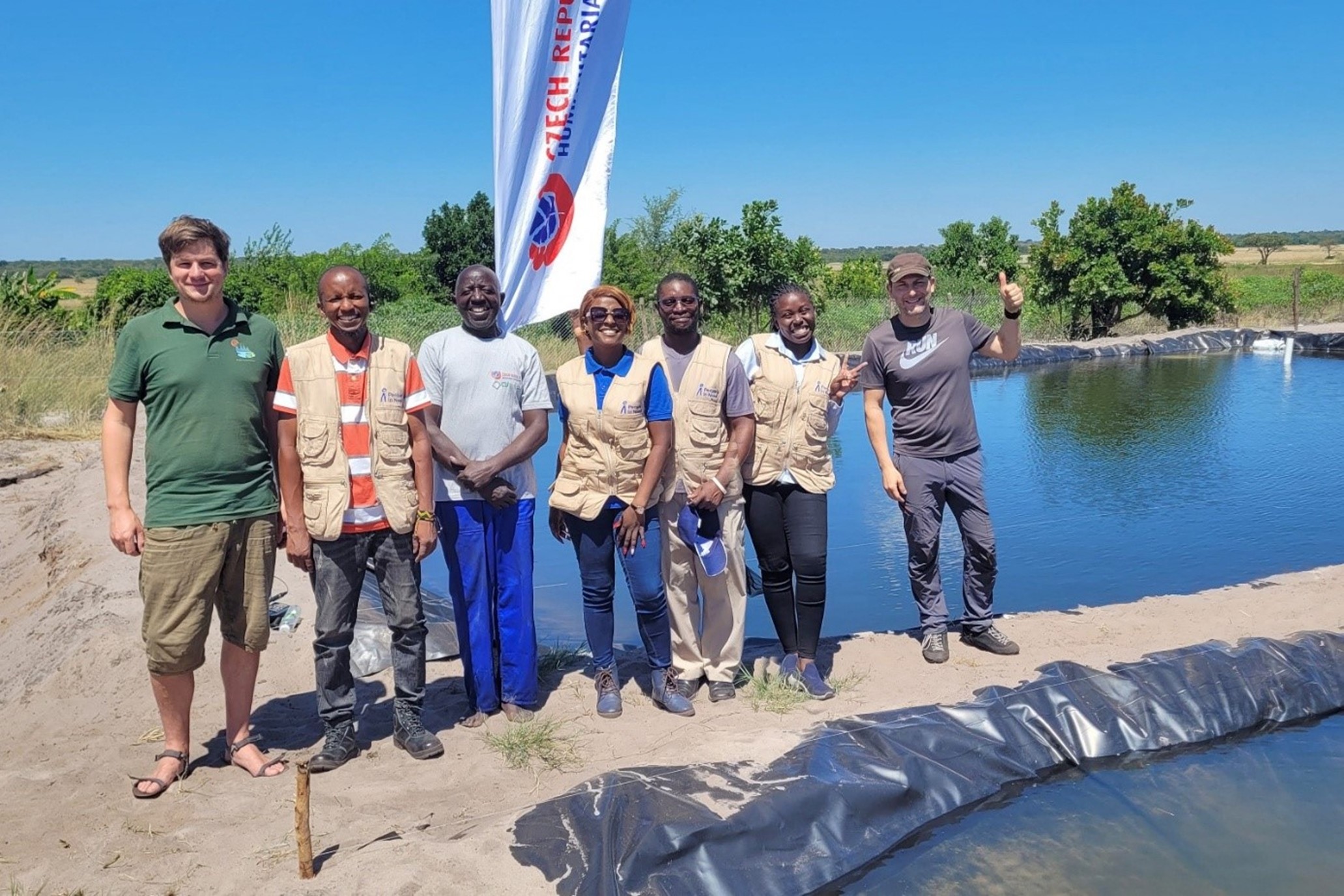In Zambia, the population is faced with the unavailability and scarcity of energy resources, and most people depend on unsustainable energy practices. The responsibility for collecting traditional resources (charcoal, firewood) is, in most cases, borne by women and girls who often cannot devote themselves to education and/or other self-realisation activities.
The project consortium which consists of People in Need (Člově v Tísni) as a coordinating institution, the Czech University of Life Sciences Prague (CZU) via the Biogas Research Team and Keepers Zambia Foundation (KZF) actively seek synergies with other entities operating in the Western Province and coordinate their activities with relevant programs implemented in Zambia.
The project is focused on Zambia's Western Province, which has long-term high levels of extreme poverty and malnutrition. The intention is to contribute to increasing resilience to climate change and increasing the food and nutritional security of small-scale farmers. This will be achieved through a specific objective: improving access to clean and sustainable energy and organic fertilisers to increase agricultural production, income, and nutrition of smallholder farmers. The intervention includes four outputs: increasing the awareness and demand of smallholder farmers for biogas technology, increasing the capacity of biogas service providers, launching a financing scheme for biogas technologies, and increasing farmers' knowledge of the use of biogas technology.
In a groundbreaking initiative, the project has taken a significant stride towards promoting sustainable aquaculture practices. Thanks to the knowledge of representatives from the Czech University of Life Sciences in Prague (Jan Staš (Biogas Research Team) and Miloslav Petrtýl) and support from the local Ministry of Fisheries and Livestock, the way is open for this initiative. Among others, 140 small-scale biogas plants are planned to be built over the duration of the project. In addition, two fishponds were constructed, where bio-slurry (digestate from biogas plant) is being tested as an alternative way to improve the fertility of the water in the aquaculture system.
At the beginning of 2024, the model ponds in the Litoya area began to test the application of digestate to the constructed ponds to increase water nutrient production and thus fish production. Detailed monitoring of the condition of these ponds and water quality was carried out during the project team's last visit to Western Province in April. Fish (a local species of tilapia, Oreochromis andersonii) were introduced into the ponds. One of the objectives is to compare the production in the two ponds, where dried digestate from the local biogas plant is applied in one pond and cow dung (as traditional fertiliser) is applied in the other pond. The result will be an evaluation of the suitability of the biogas by-product for aquaculture production parameters.
The project demonstrates the dual benefits of biogas production. The process results in biogas itself (as an alternative source of renewable energy) and digestate, which is a climate-friendly and cost-effective form of organic substrate. It can be used as a fertiliser to support crop production, but also to increase the water fertility of ponds, which can significantly improve aquaculture production, further leading to food self-sufficiency and improving the nutritional composition of the local population's diet.
Embracing the dual benefits of bio-slurry, a climate-smart and financially efficient solution, the project not only promotes renewable energy, but also aims to introduce farmers to a revolutionary approach for enhancing aquaculture practices. Cultivating this path toward a greener and more resilient future for agriculture can show the transformative potential of the project in unlocking the boundless possibilities of sustainable aquaculture.
- Brighter future for rural household biogas in Zambia
- V západní Zambii úspěšně pokračuje projekt ČRA podporující ochranu životního prostředí stavěním bioplynáren (Czech only)
- Zelený management: Češi učí Afričany hospodařit, prodávat i zpracovávat odpad (Czech only)


